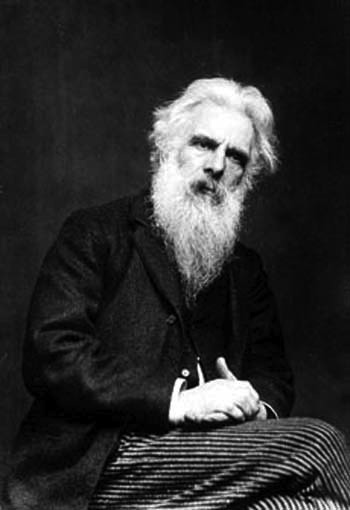Unsupported Transit
What do the murder of a wife’s lover, Philip Glass, and The Matrix have in common? Eadweard Muybridge.

Mr. Muybridge (1830 – 1904) is an interesting man who made great strides in stop-action photography and the study of animal locomotion in the late 19th century. He was a commercial photographer who is credited with providing proof for a bet made by Leland Stanford, then Governor of California and race horse owner, that during a gallop, horses actually have all four feet off of the ground at one point. In order to get this photographic evidence, Muybridge eventually developed the multiple-camera technique which predated celluloid filmstrips, but is actually still used in multiple angle shots used to slow down the action (a process now called “bullet time” – think The Matrix).
Perhaps you’ve seen this famous series of photographs and the proof they provide for “unsupported transit”. Perhaps you were lucky enough to have a zoetrope top when you were little. Or perhaps, in researching optical toys for your exploration in optics class, you came across the praxinoscope and delighted in the simple magic of it. I am very lucky indeed, for I have experienced all three and find Mr. Muybridge a fascinating character!
Back to the original question: it appears that Mr. Muybridge, in addition to reinventing himself and refining some photographic techniques, had a rocky life in which he killed his wife’s lover, but was acquitted by reason of “justifiable homicide”! This makes the fact that they tried to plead not guilty by reason of insanity only the second most outrageous part of the trial. This whole episode is the basis for composer Phillip Glass’ opera, The Photographer.
Finally, as Mr. Muybridge considered himself primarily a photographer and not a scientist, it seems that he had no compunction about doctoring his less-than-clear photos for gain in his study of animal motion. A detailed chronology of his life can be found here.
While he was a photographic pioneer, who is sometimes referred to as the Father of Motion Pictures, Eadweard Muybridge never became a household name.

Mr. Muybridge (1830 – 1904) is an interesting man who made great strides in stop-action photography and the study of animal locomotion in the late 19th century. He was a commercial photographer who is credited with providing proof for a bet made by Leland Stanford, then Governor of California and race horse owner, that during a gallop, horses actually have all four feet off of the ground at one point. In order to get this photographic evidence, Muybridge eventually developed the multiple-camera technique which predated celluloid filmstrips, but is actually still used in multiple angle shots used to slow down the action (a process now called “bullet time” – think The Matrix).
Perhaps you’ve seen this famous series of photographs and the proof they provide for “unsupported transit”. Perhaps you were lucky enough to have a zoetrope top when you were little. Or perhaps, in researching optical toys for your exploration in optics class, you came across the praxinoscope and delighted in the simple magic of it. I am very lucky indeed, for I have experienced all three and find Mr. Muybridge a fascinating character!
Back to the original question: it appears that Mr. Muybridge, in addition to reinventing himself and refining some photographic techniques, had a rocky life in which he killed his wife’s lover, but was acquitted by reason of “justifiable homicide”! This makes the fact that they tried to plead not guilty by reason of insanity only the second most outrageous part of the trial. This whole episode is the basis for composer Phillip Glass’ opera, The Photographer.
Finally, as Mr. Muybridge considered himself primarily a photographer and not a scientist, it seems that he had no compunction about doctoring his less-than-clear photos for gain in his study of animal motion. A detailed chronology of his life can be found here.
While he was a photographic pioneer, who is sometimes referred to as the Father of Motion Pictures, Eadweard Muybridge never became a household name.

Comments